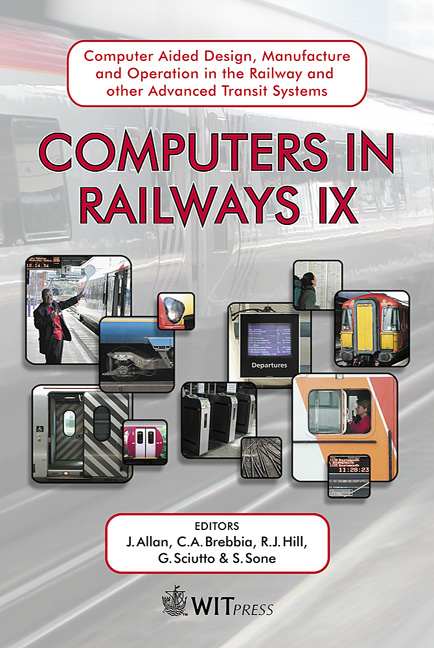Increase Of Capacity Through Optimised Timetabling
Price
Free (open access)
Transaction
Volume
74
Pages
10
Published
2004
Size
248 kb
Paper DOI
10.2495/CR040541
Copyright
WIT Press
Author(s)
I.A. Hansen
Abstract
The throughput of track infrastructure and the quality of railway services can be enhanced by a set of intelligent scheduling measures provided that the timetable design takes the variations of real operations sufficiently into account. Small variations of the train running and dwell times are currently compensated for by standard time supplements and margins between train paths, which, so far, are mainly based on rules of thumb, sometimes checked by simulation. The paper discusses the current methods to estimate characteristic timetable variables as minimal time headway, slack and waiting time. A new stochastic approach is presented for the estimation of blocking times and buffer times at bottlenecks based on the distributions of the start and of blocking time ‘waves’ of trains, which aims at reflecting the interaction between trains following each other on saturated routes
Keywords





